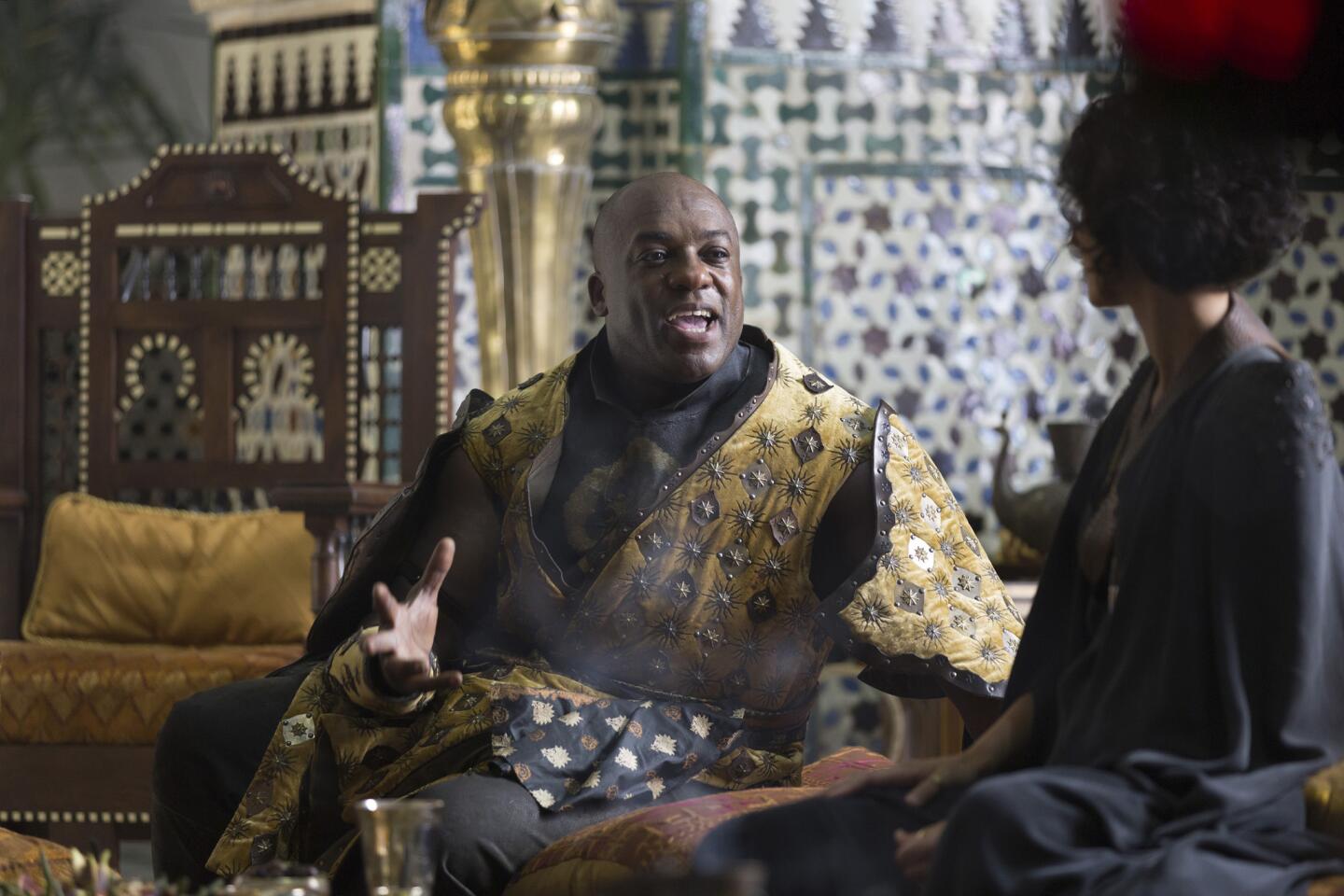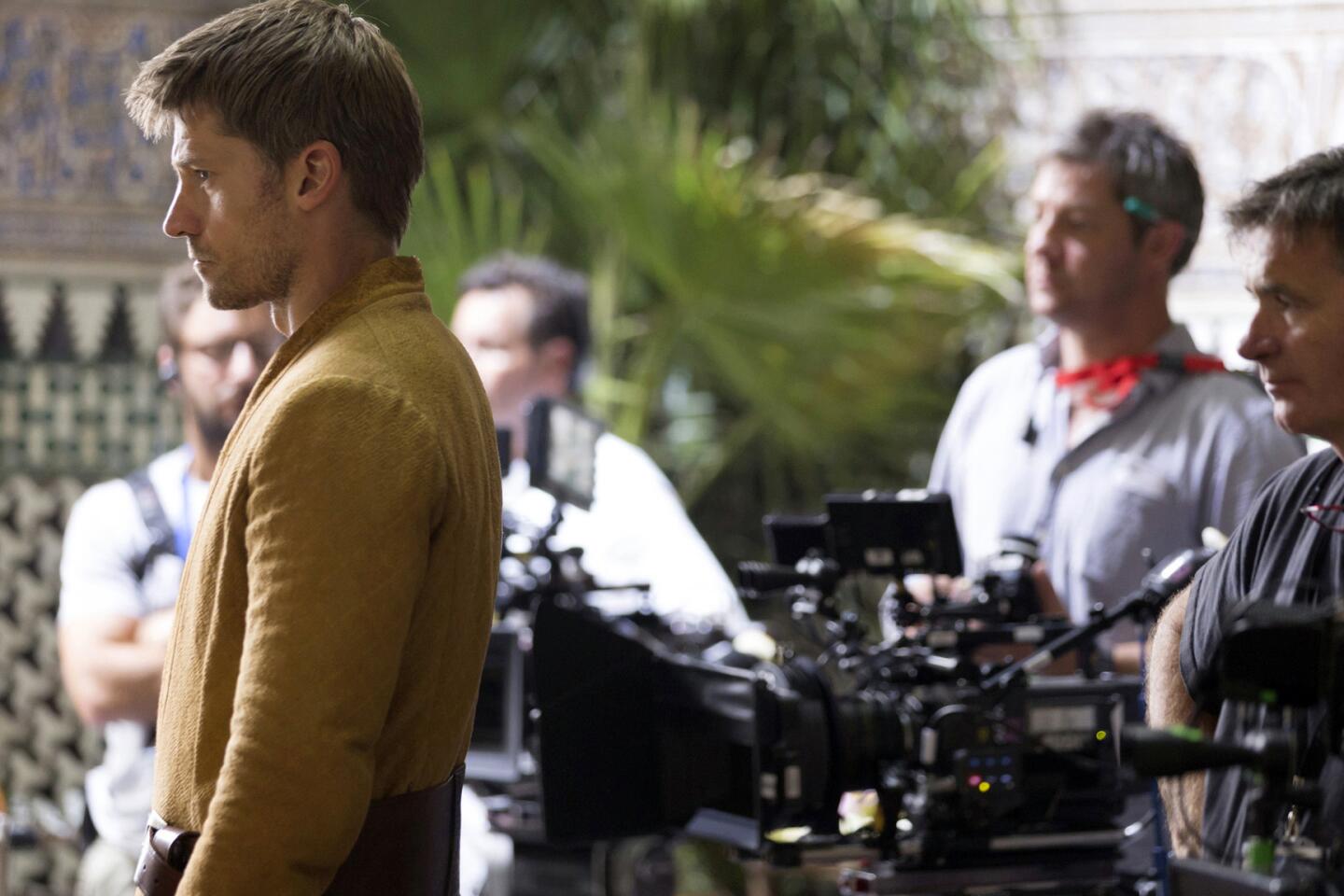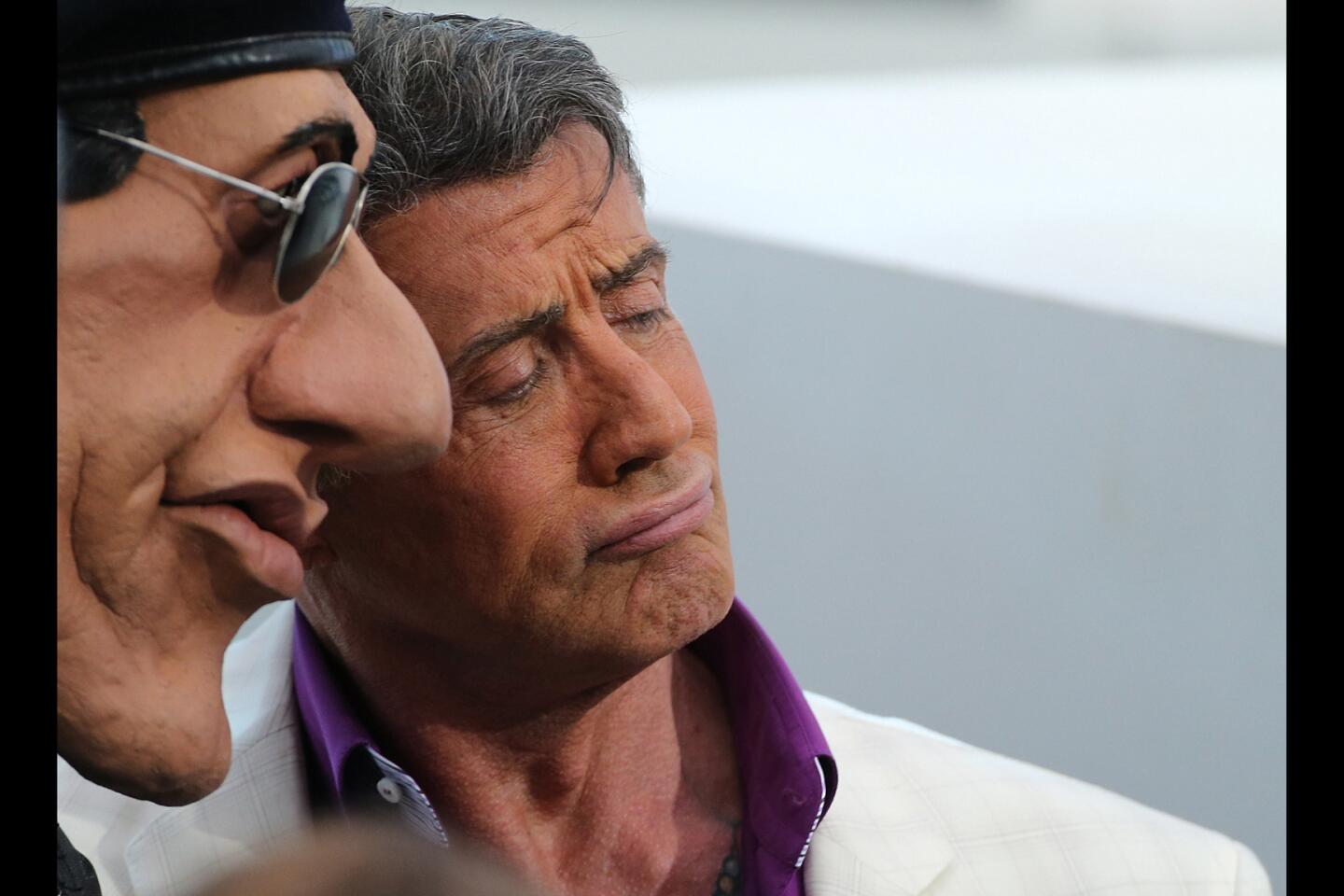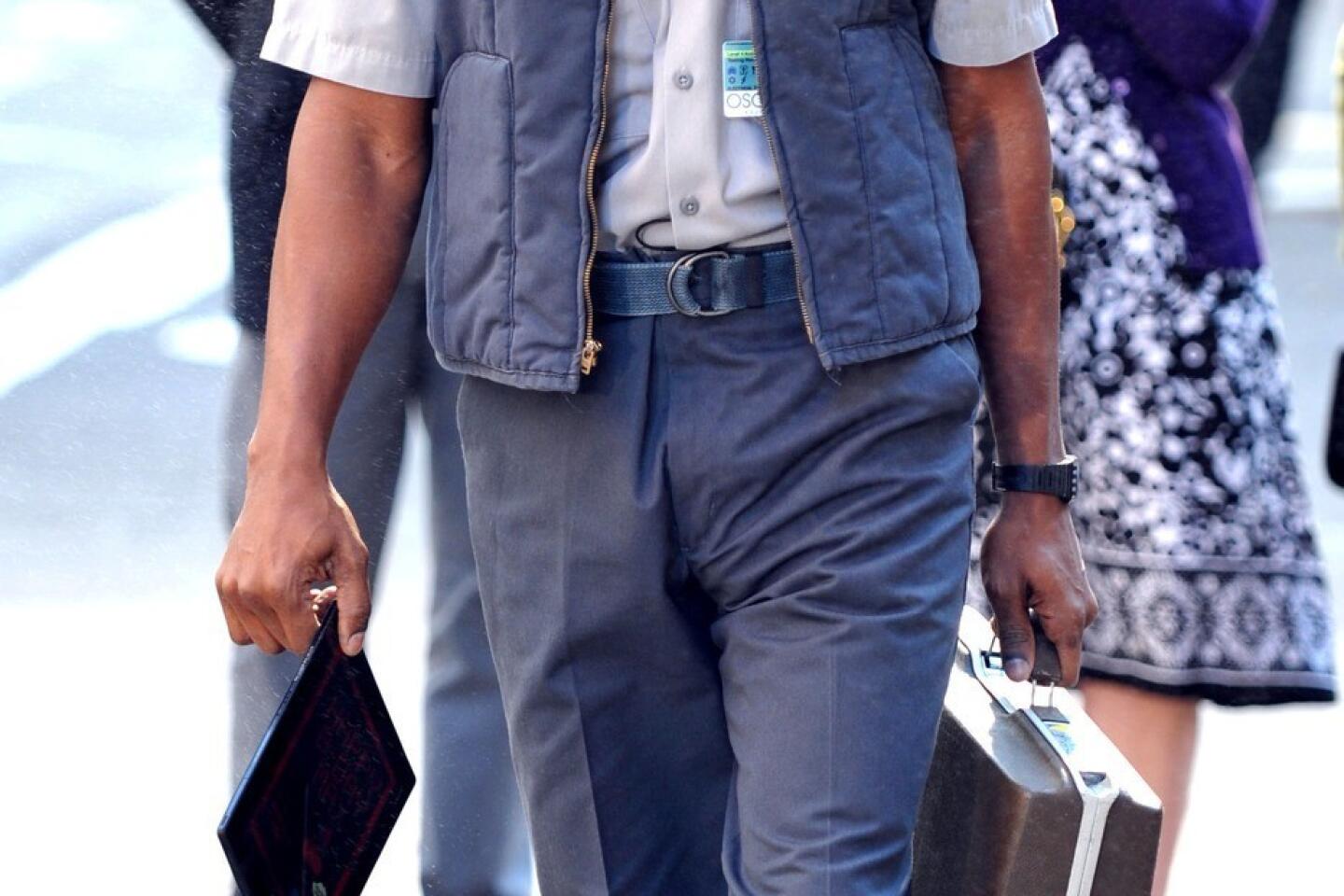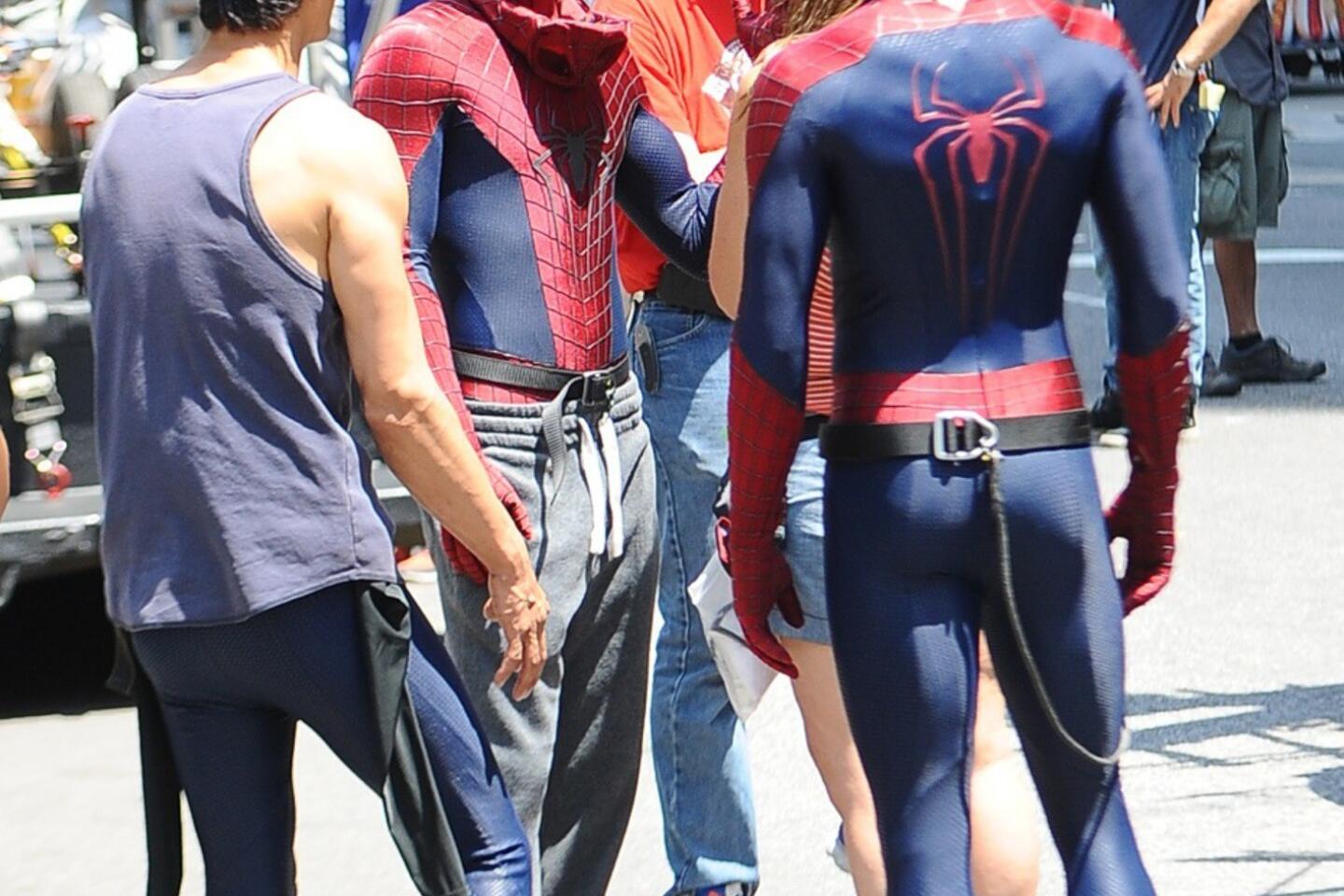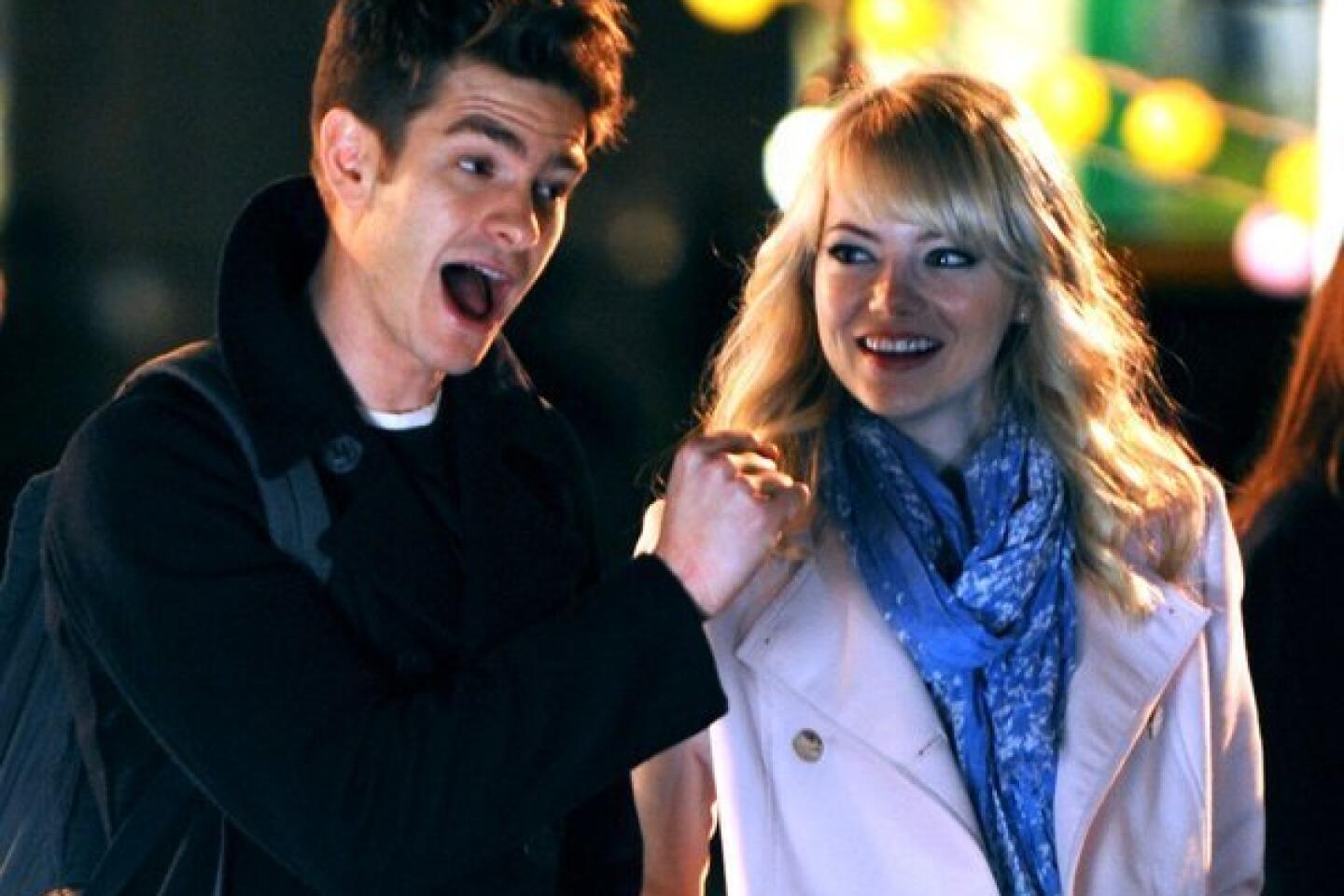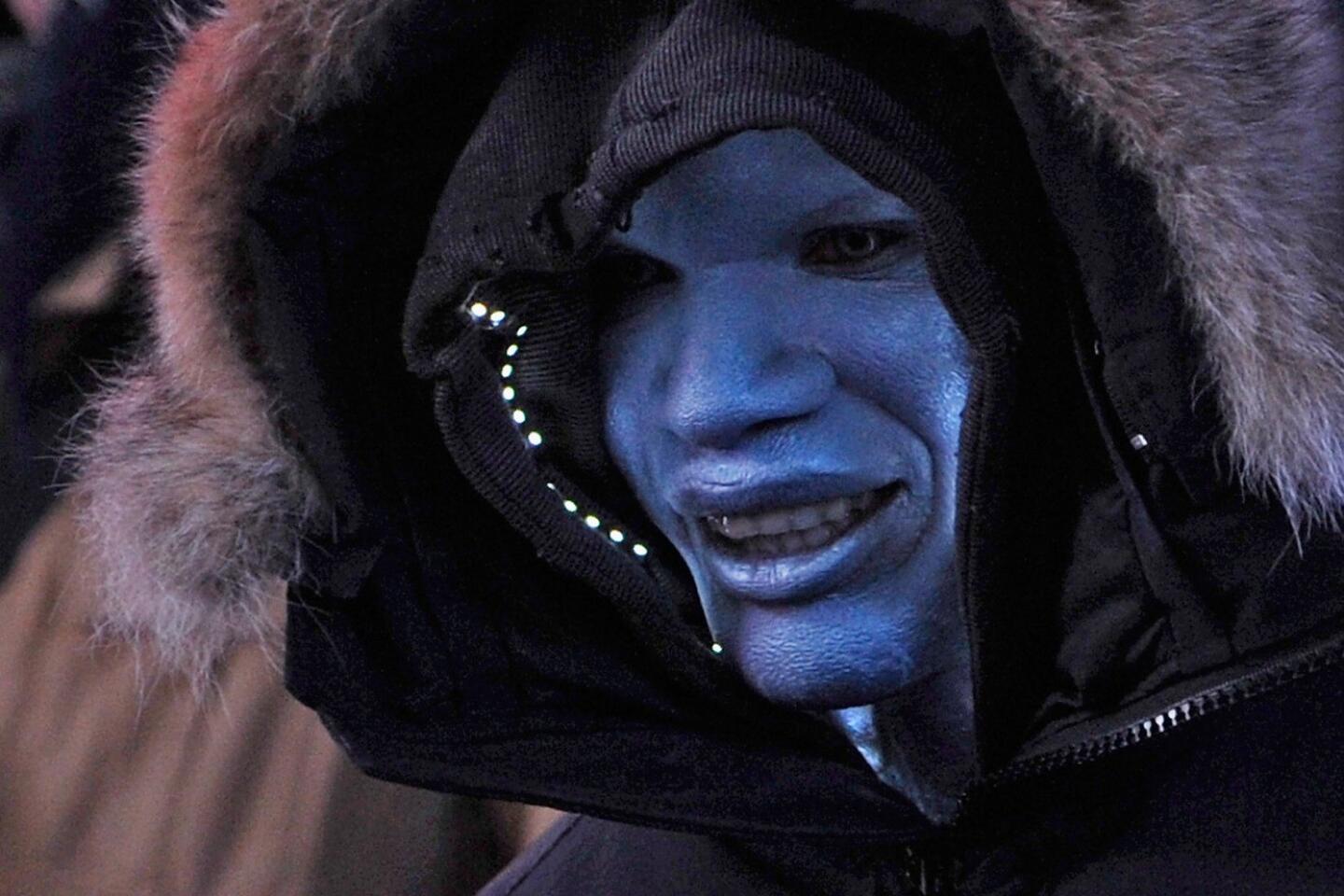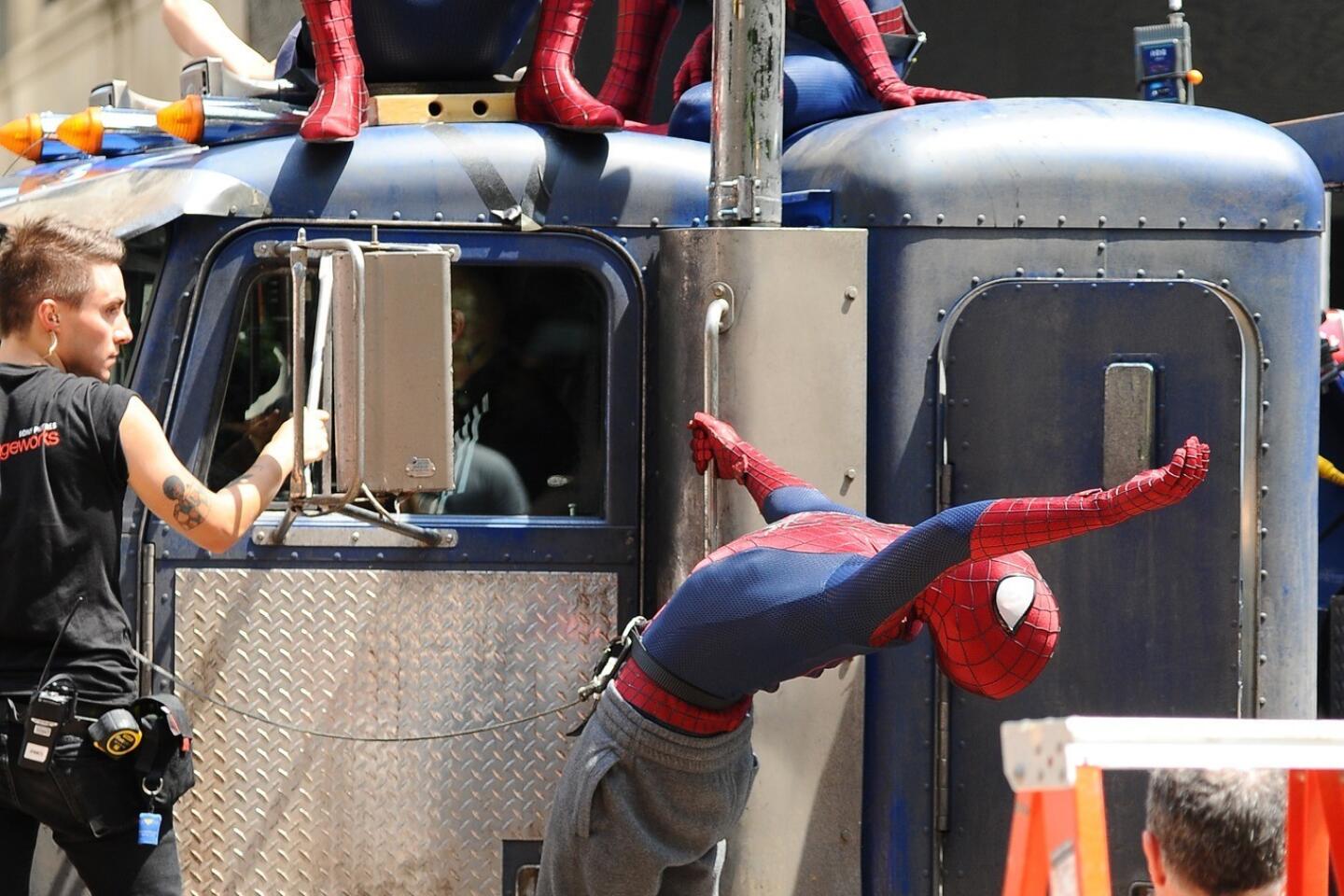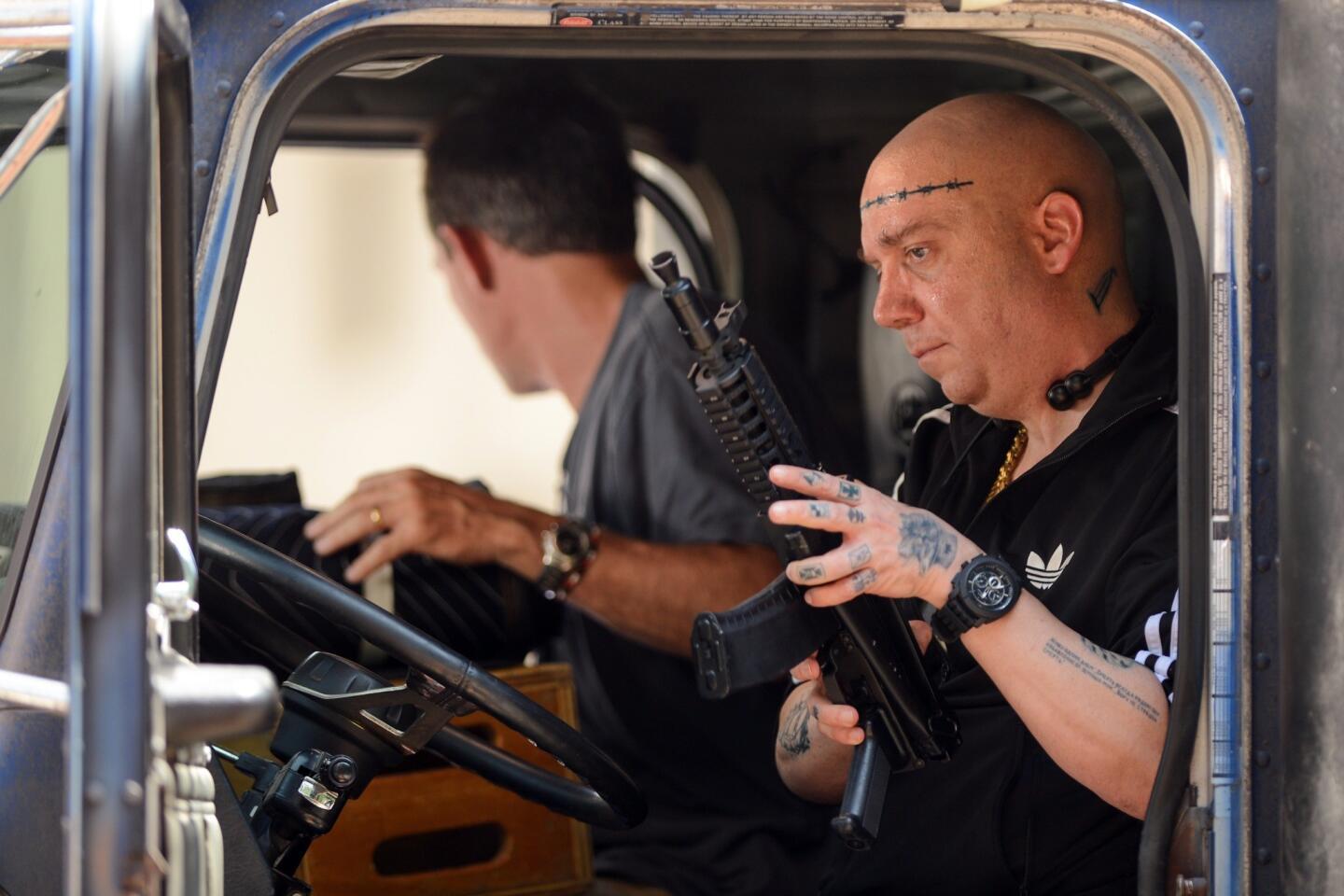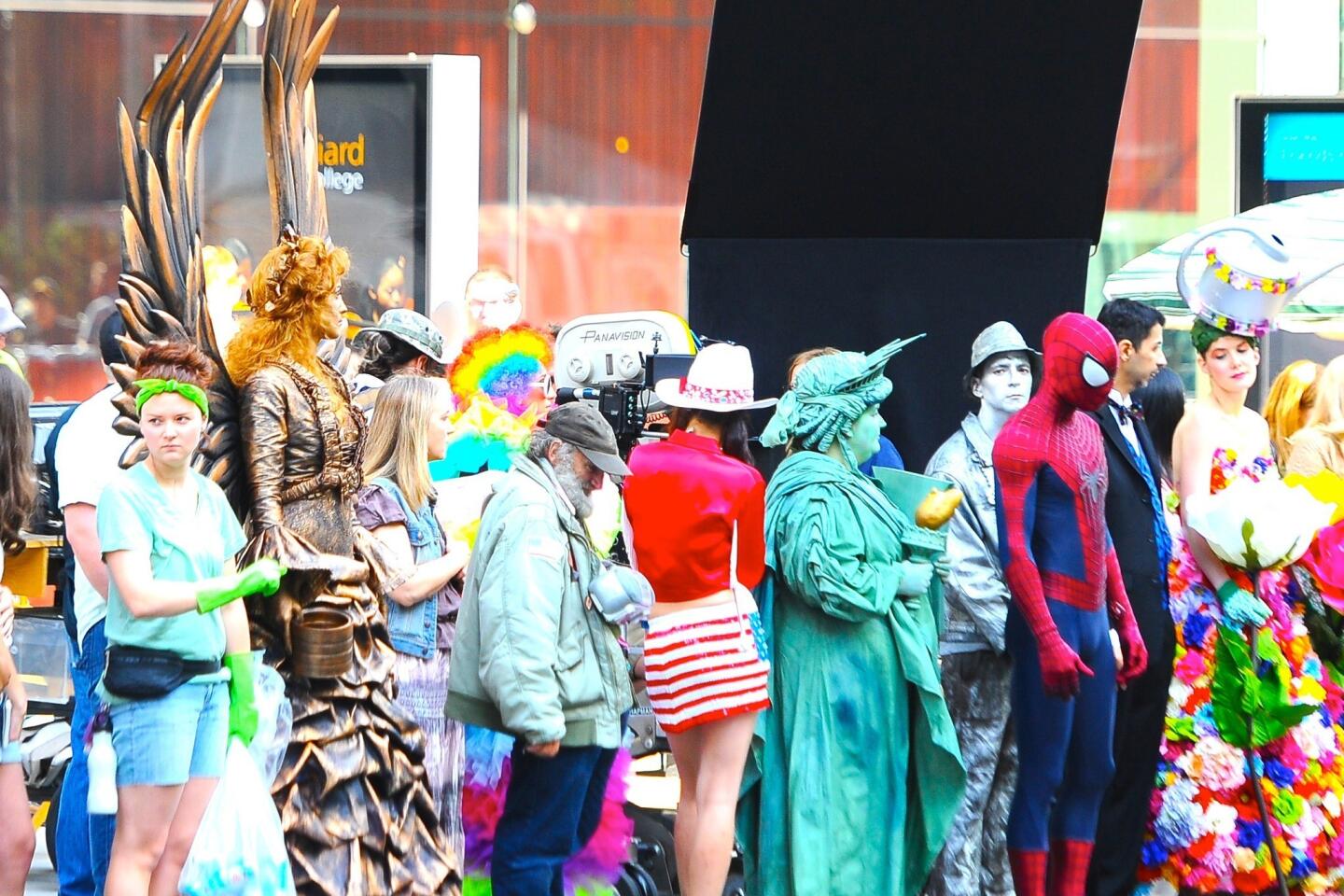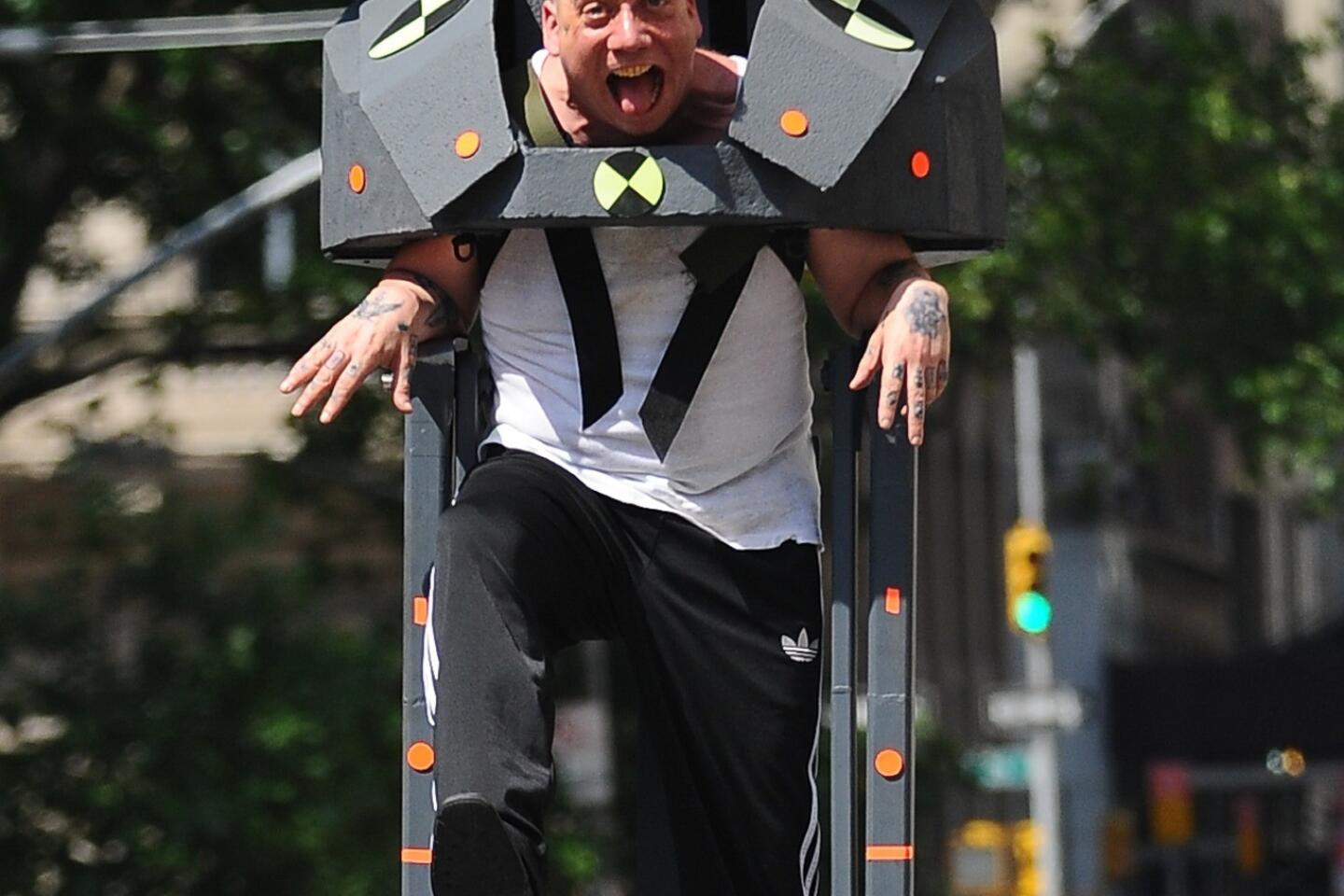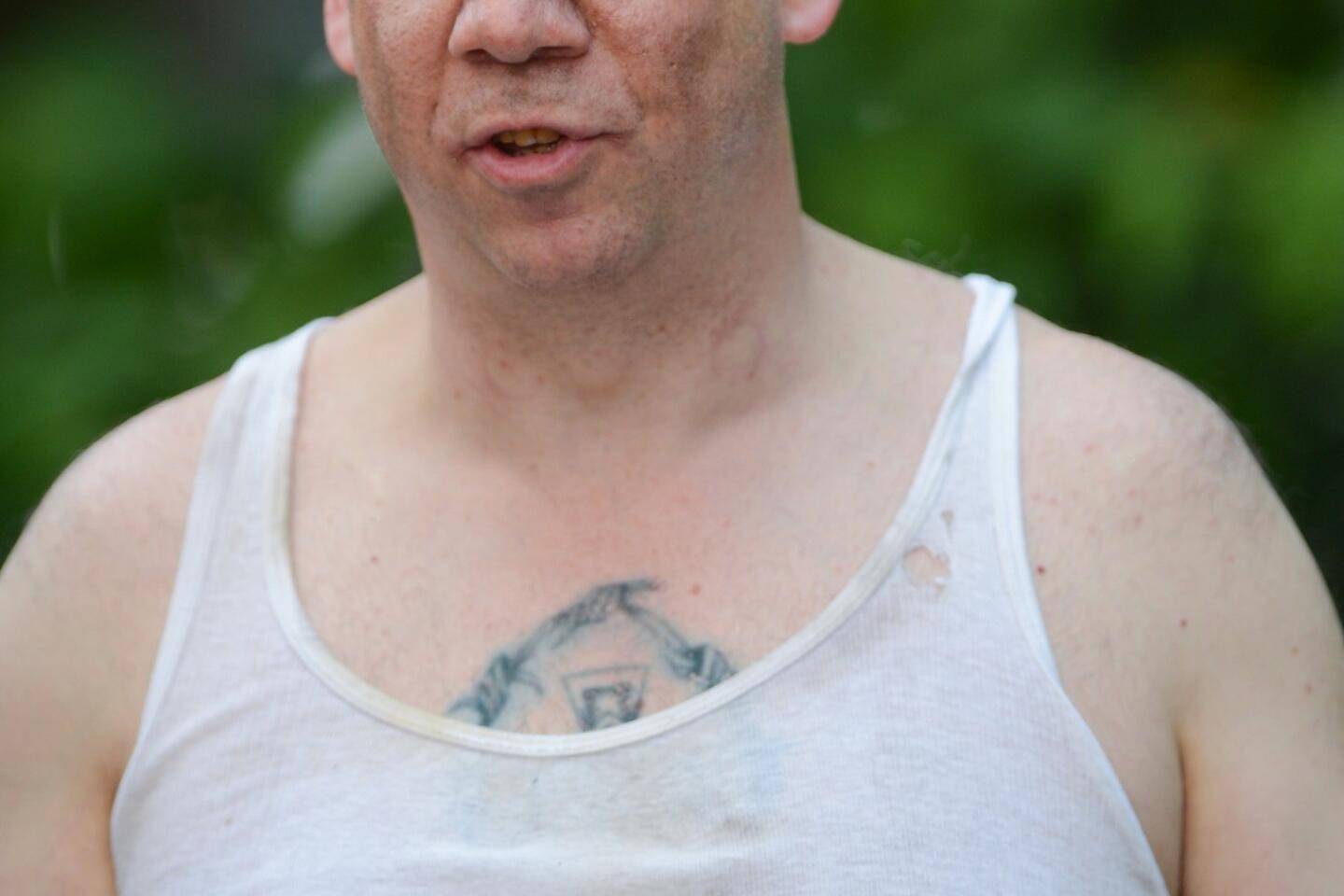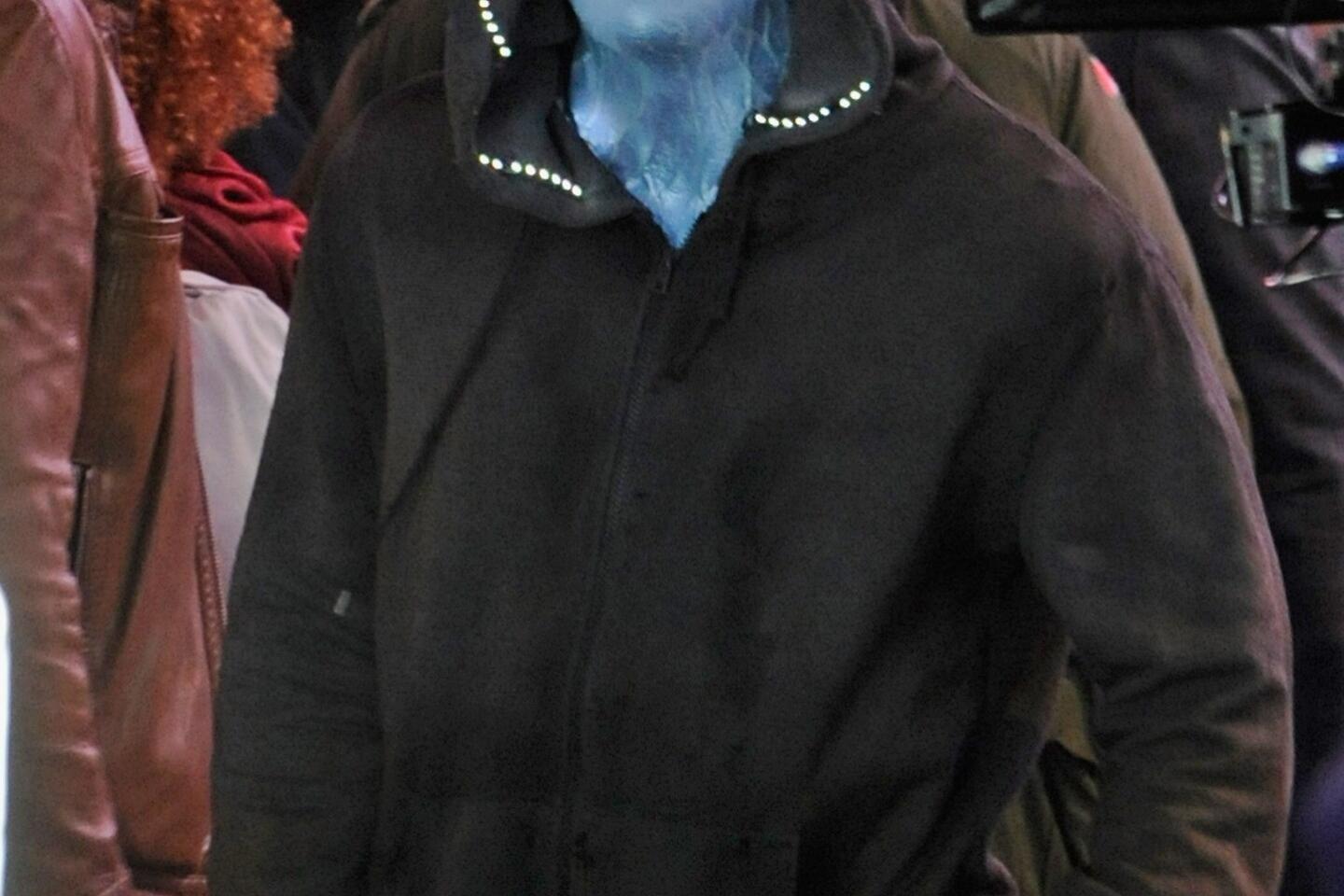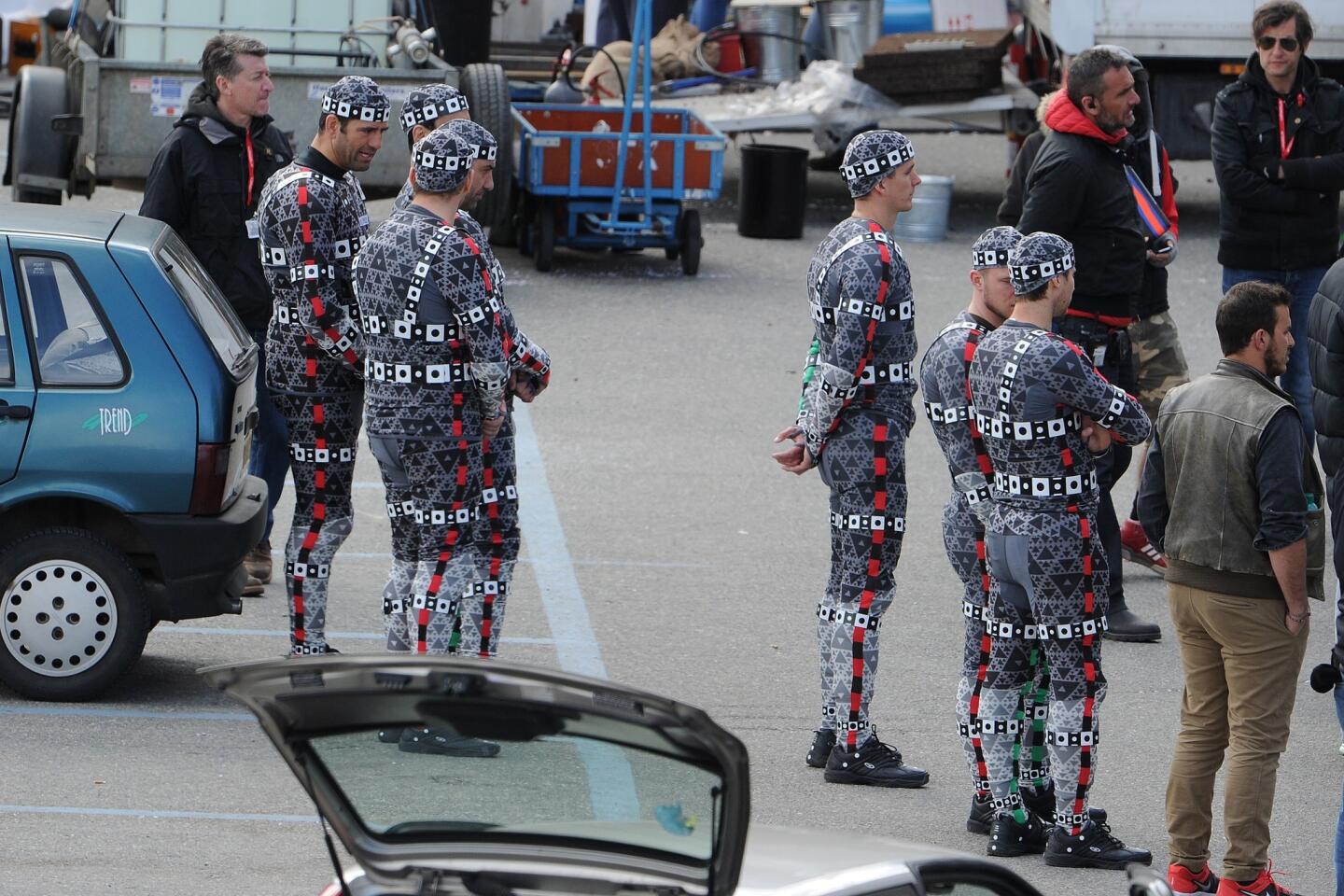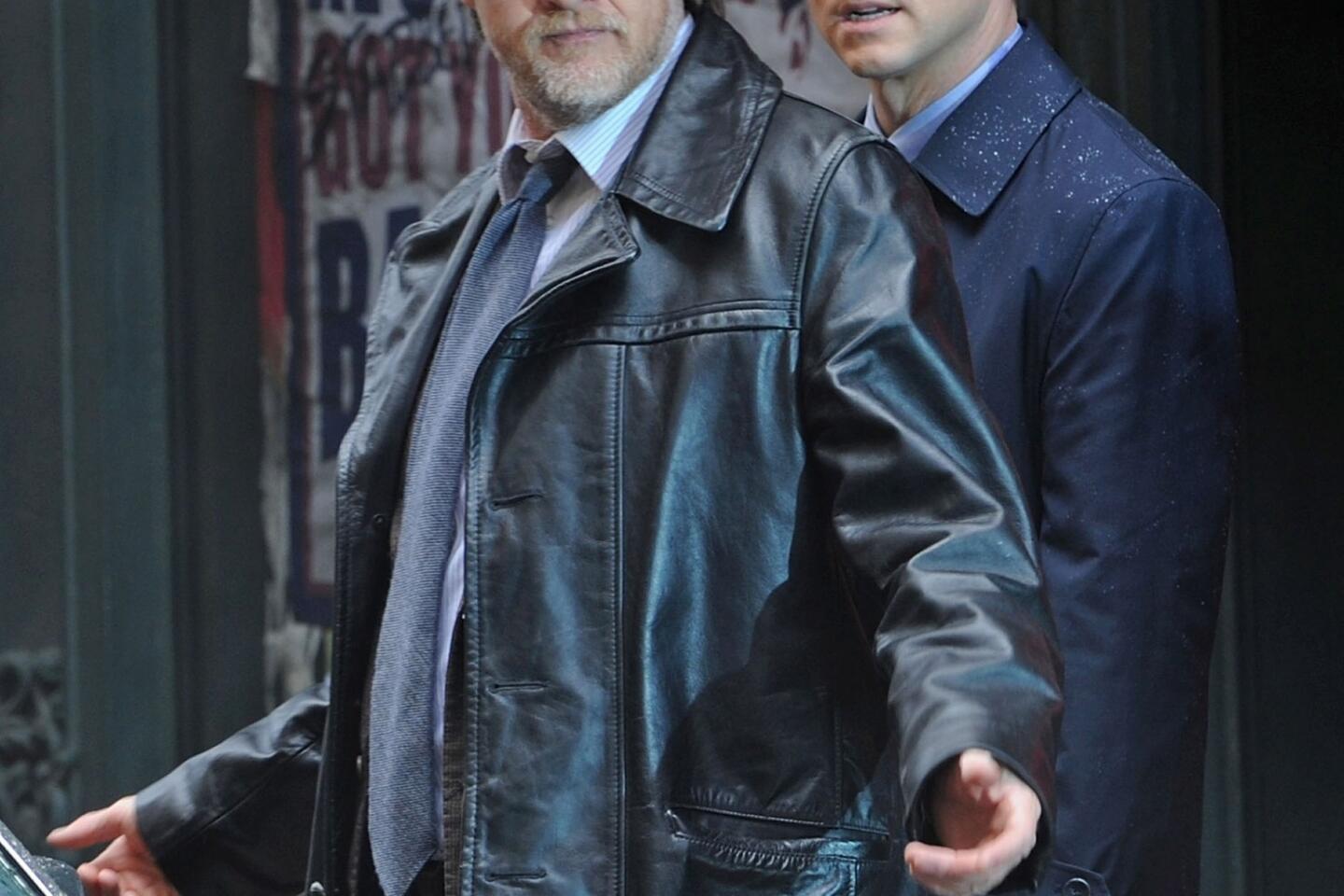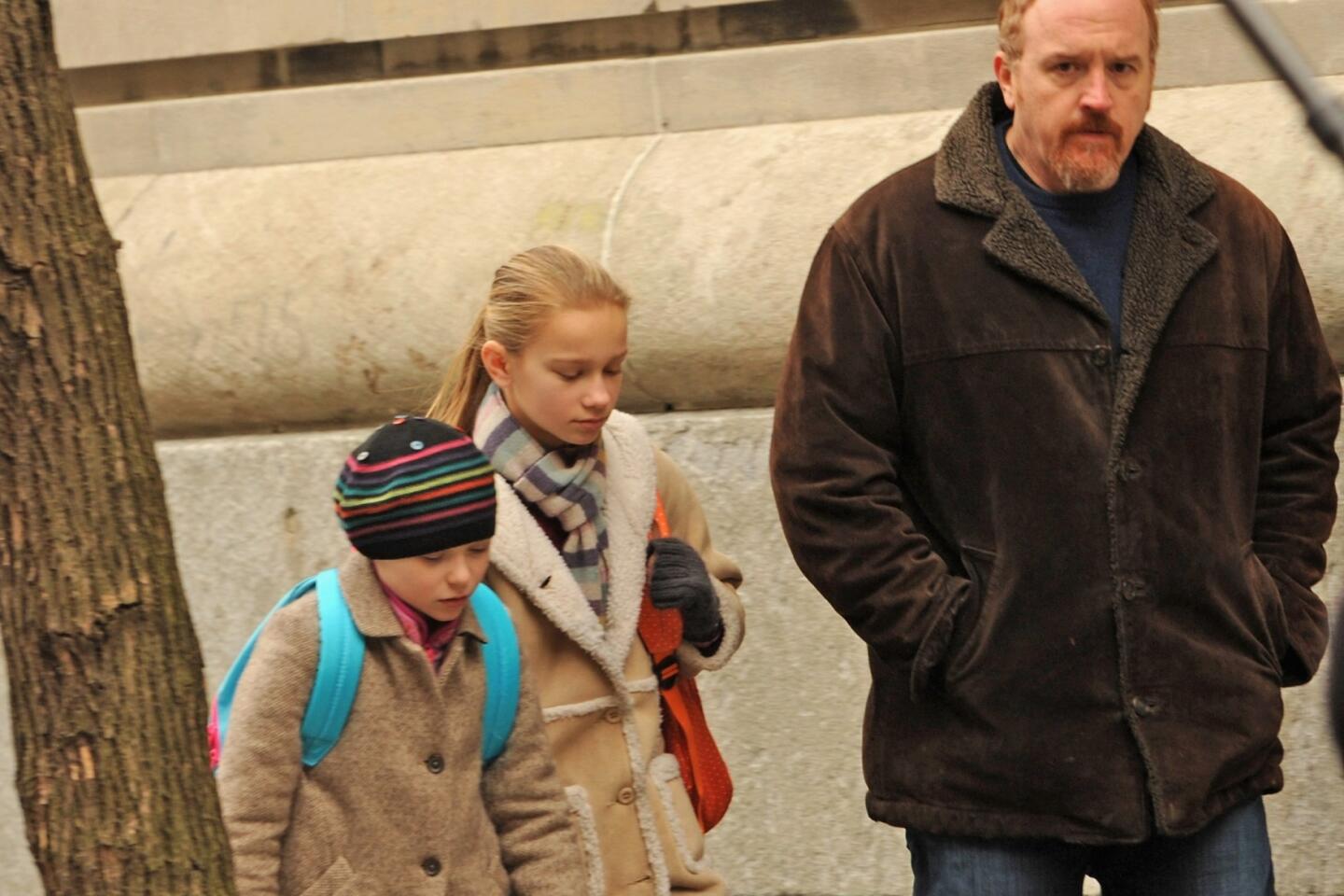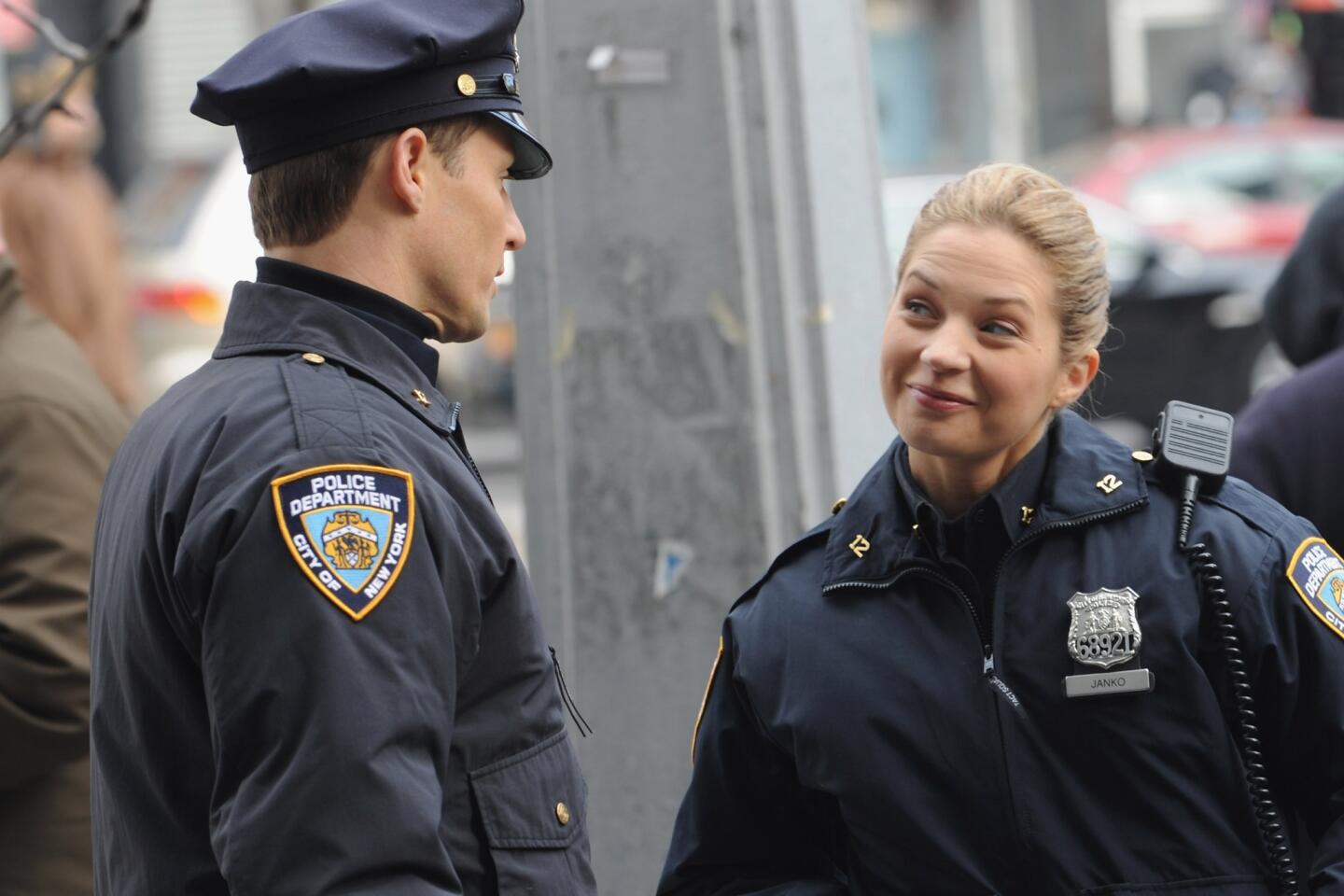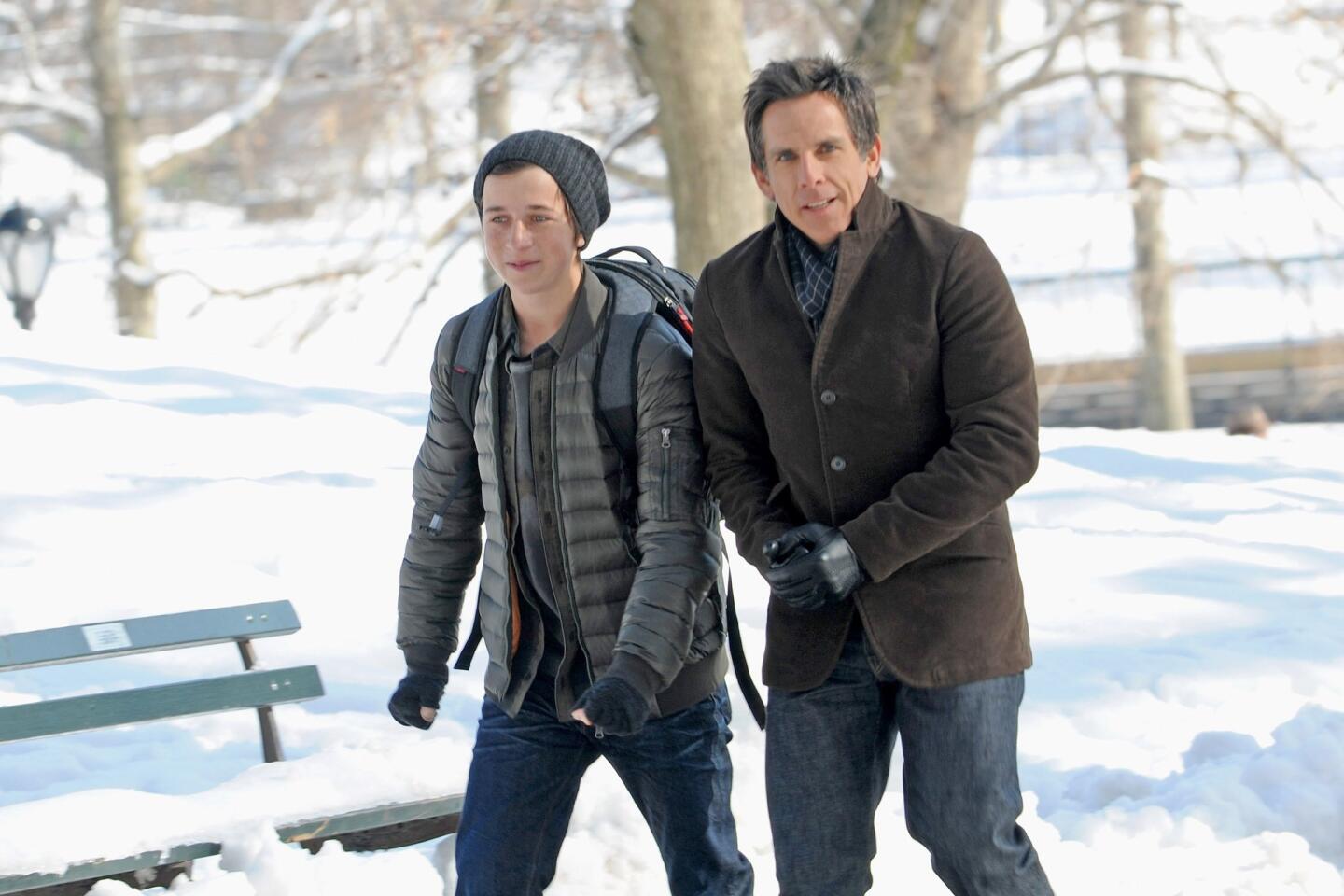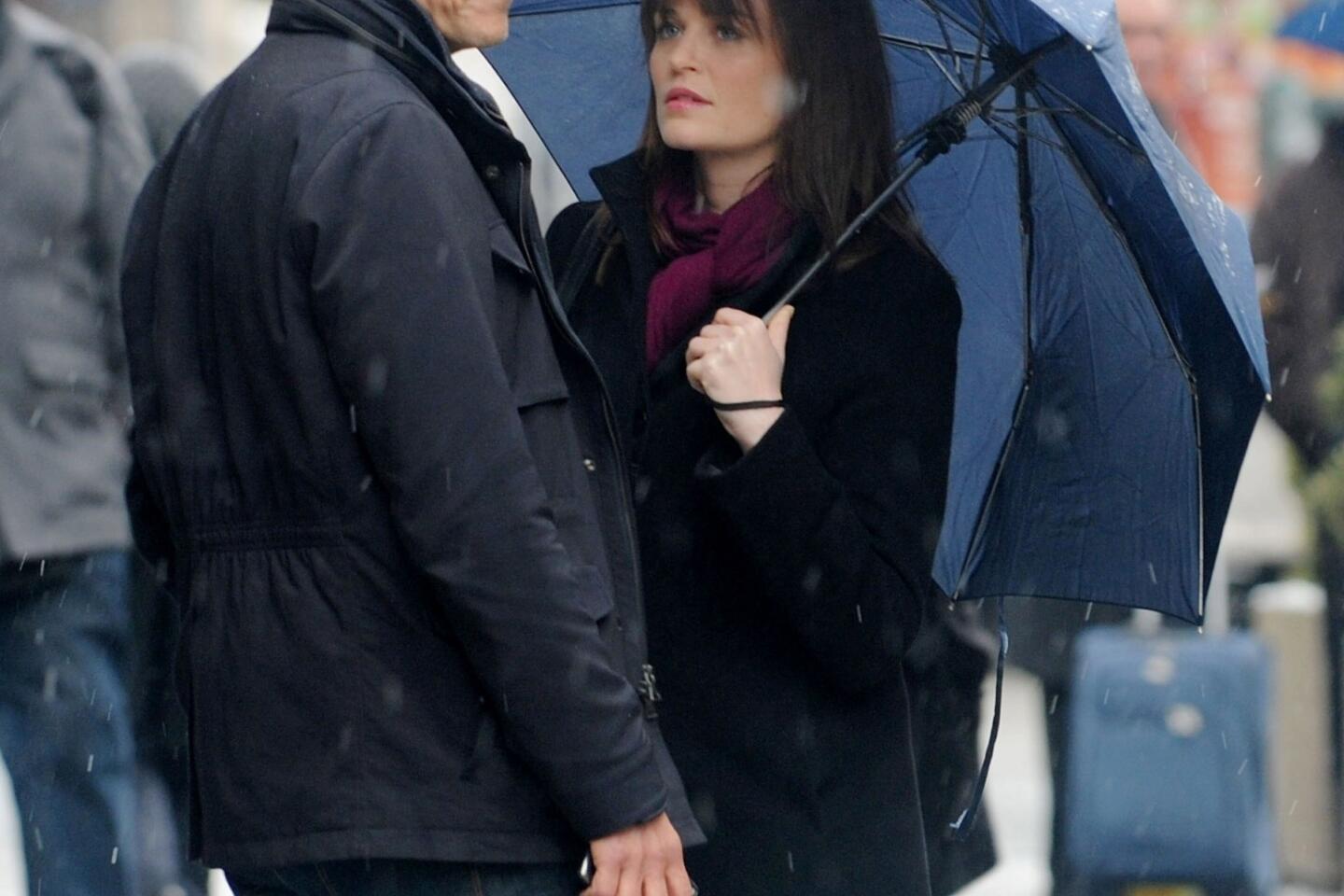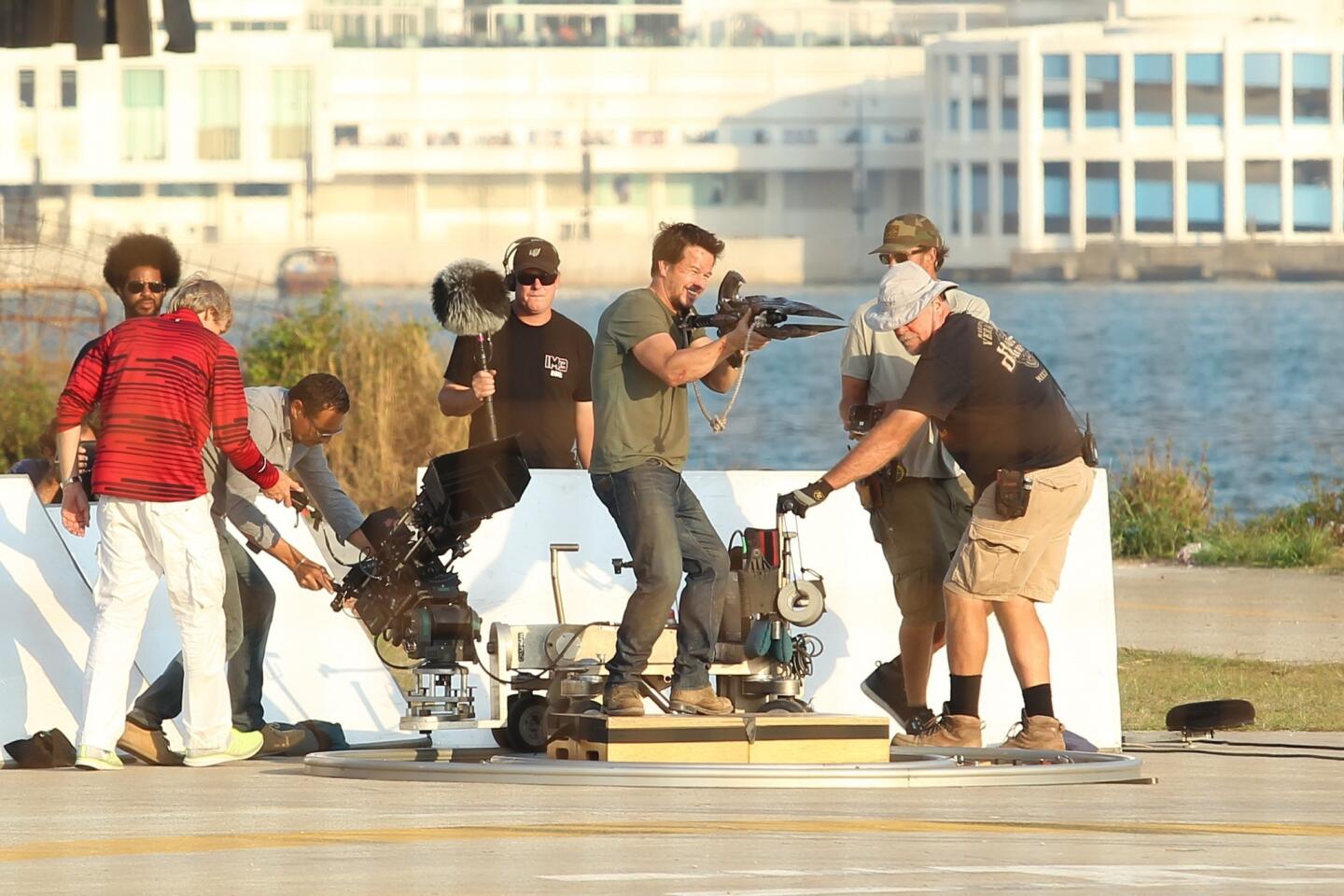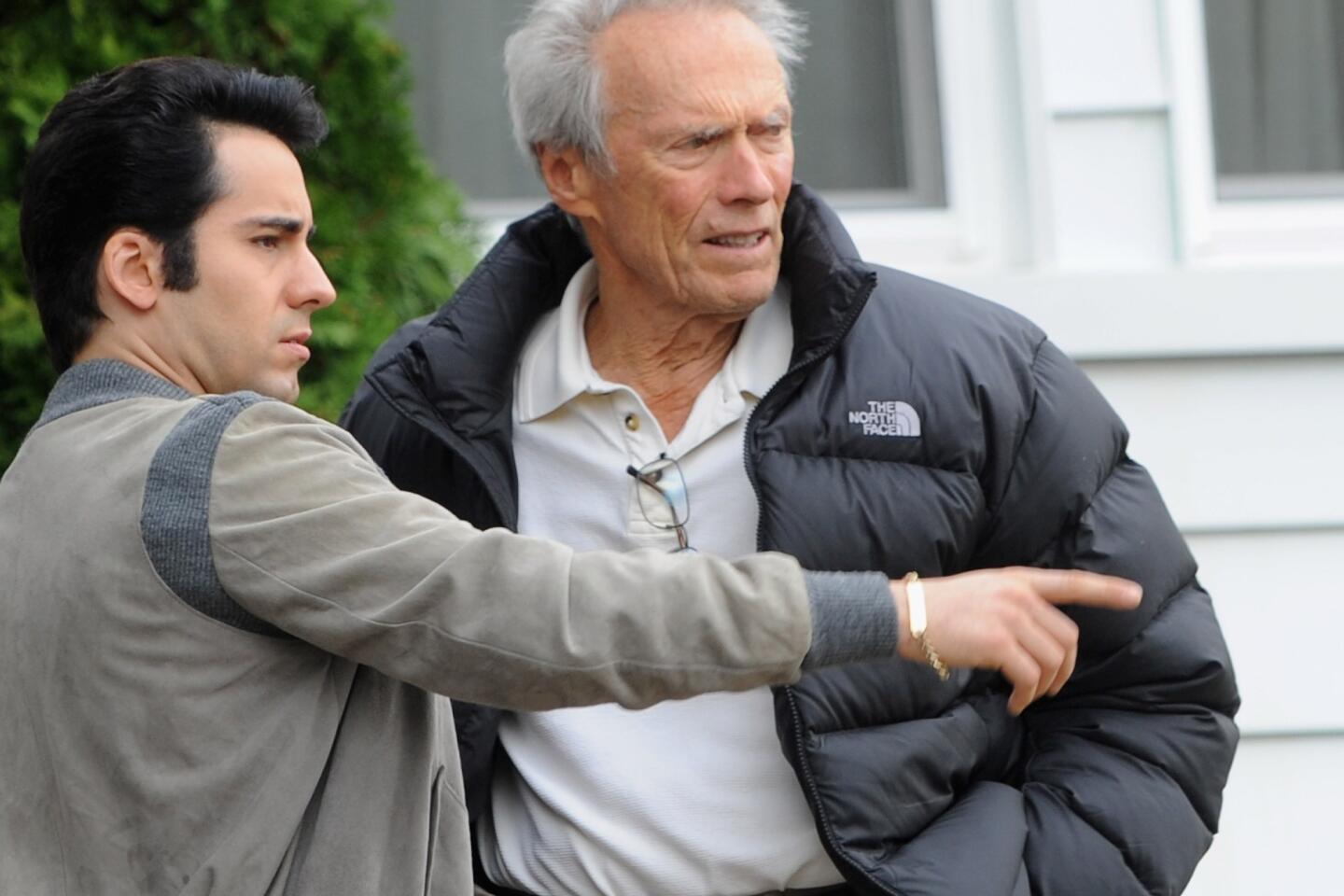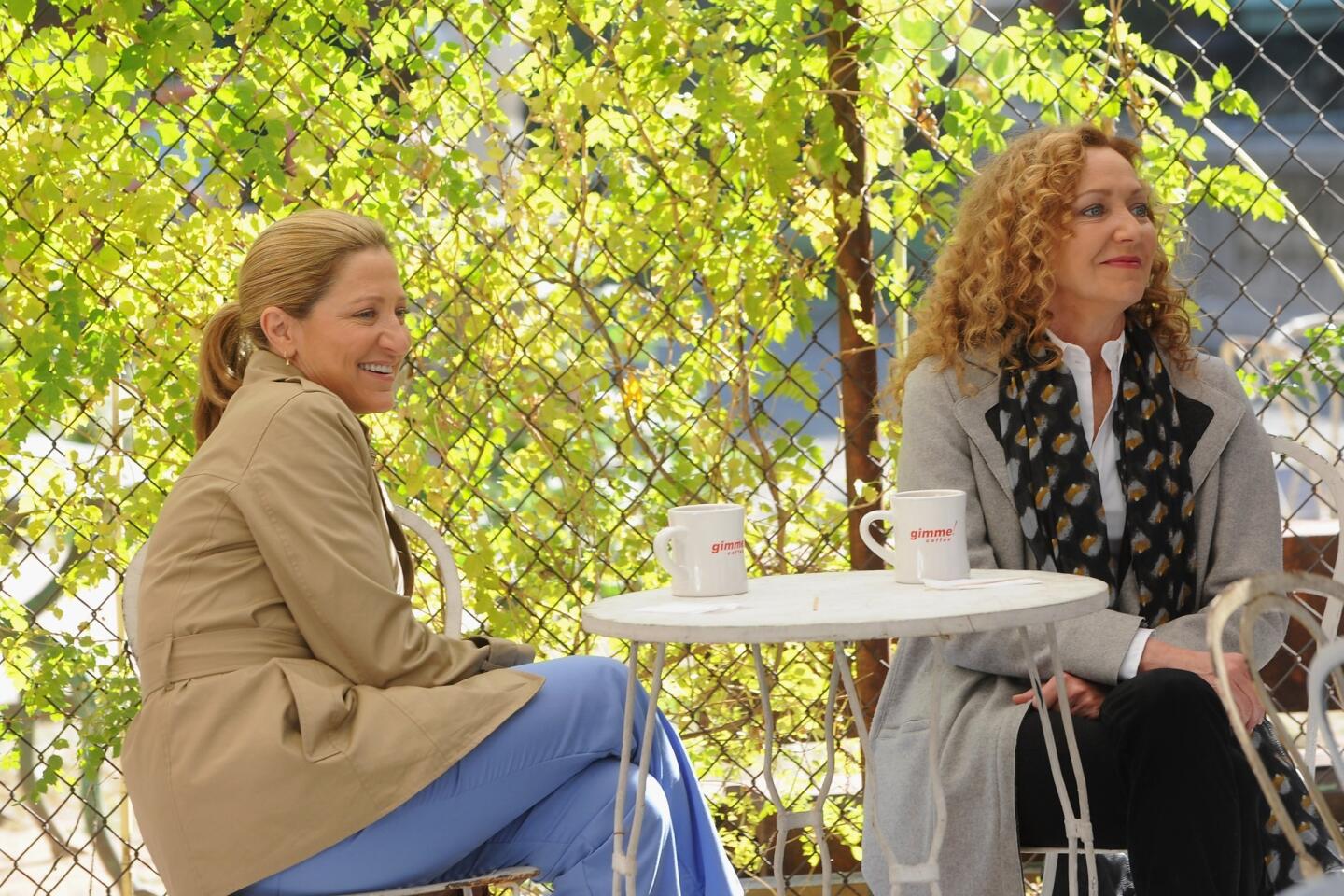‘Dexter’ enters last season with knife marks all over TV landscape
- Share via
When Showtime debuted “Dexter” way back in 2006, people couldn’t quite grasp what they were seeing. A serial killer? As a sympathetic leading man? Were those the flames of Sodom burning distantly behind us?
“Silence of the Lambs” had whet our appetite for charm-boy sociopaths — who did not rejoice when Anthony Hopkins’ Hannibal Lecter escaped and began stalking his former jailer? (A man, it must be noted, who did nothing worse than irritate a convicted cannibalistic serial murderer with bad TV.) Eight years later, HBO introduced the sympathetic antihero as social icon with “The Sopranos.” “Dexter,” based on novels by Jeff Lindsay, simply took things one step further.
Well, no. Actually “Dexter,” which enters its eighth and final season on June 30, jacked the whole thing, threw a couple of body parts and some plastic wrap in the trunk and headed out to the salt flats to see how far things could go before the wheels fell off.
Full coverage: Summer TV preview
Pretty darn far, as it turned out. Although it never achieved the audience or the crowded awards shelf of “The Sopranos,” “Dexter” was just as influential, leaving marks on the throat of television that grow only more vivid with time. Serial killers quickly made the leap from cable to non, where they are now a dime a dozen, and not just in crime shows such as “Hannibal” or “The Following.” A character on “Scandal” was recently depicted, in flashback, torturing and killing people in a plastic-swathed room that could have been decorated by Dexter. And in the end, we were supposed to feel sorry for him.
The “Dexter effect” was physical and psychological. Certainly the Emmy noms and critical respect the show received encouraged other shows to up the blood and gore in which television is always far too happy to wallow; gruesome murder became not just acceptable but artistic. But bad copies will dog any masterpiece, and those who see “Dexter” as simply a bloody use of cable’s hard R miss the point of the show.
Cold-bloodily funny, “Dexter” took our love affair with both violence and the antihero to the crumbling brink of sanity — as Dexter himself said many times, he was simply the narrow end of a very long road. The show shoved our beloved culture of self-acceptance up against a fun-house mirror. Morning and afternoon talk shows mined serial adulterers and abusive parents and reality TV pitied hoarders, dirt eaters and exercise bulimics, but nothing beat “Dexter” for pushing the outer limits of humanity.
Like the main character of the novels, Dexter Morgan (Michael C. Hall) functioned as a free-standing id. Roaming the streets of Miami, he experienced nothing but personal need. With his puppy-dog eyes and boy-next-door mien, the brilliantly cast Hall made Dexter immediately likable, even as he confessed the most horrible things. In a world crowded with voice-overs, Hall’s quickly became the best in the business, vocalizing the icy calculation many of us secretly feel when surveying our fellow humans.
Insightful and often hilarious in the way outsiders often are, Dexter was the ultimate predator; he wanted to kill, he needed to kill and he did kill. Lindsay kept him on this side of sympathetic using one of the neatest literary cheats in contemporary fiction — Dexter killed only bad guys, people so bad and slippery and smart that there was no way traditional methods (i.e., the police) would bring them to justice. He also gave him an Oprah-to-the-nth back story: Orphaned young by a chain-saw-wielding drug thug, Dexter was lifted from a puddle of his mother’s blood by Harry (James Remar), a Miami Dade Police detective who recognized the boy’s early murderous instincts and groomed him to be a Robin Hood o’ death.
Even Dexter’s job — blood-spatter analysis for the same institution — was something of a joke. At some point, every detective faces the fact that no one understands murder better than a murderer.
PHOTOS: Memorable TV series finales
Season after season, Dexter gave us the ultimate “detective with something extra.” More than that, he represented the painful control all of us must exert over some part of our “true” selves. In the nonsociopath this may be as benign as dieting or as potentially fatal as drug addiction, but there is a voice in almost every head guiding baser instincts away from the social cliff.
Over the years the character became more human, acquired a wife and a child, began resisting the notion that he was, irrefutably, a monster to be managed. It was around this time that his limited shelf-life began to show — even with a consistently fine supporting cast and increasingly fabulous guest stars, there is only so far you can take a vigilante serial killer.
For many, including me, Showtime took Dexter a few seasons too far. At the end of Season 4, in murdering John Lithgow’s serial murderer, the Trinity killer, Dexter violated his most important rule. The police were on to Trinity, but Dexter chose to hunt Trinity for simple satisfaction. He got his man, but not before Trinity killed Dexter’s wife (Julie Benz) first. In Season 5, Dexter attempted to redeem himself by saving another woman, Lumen (Julia Stiles), and destroying a ring of murderous rapists, but it wasn’t quite enough.
In what may wind up being one of television’s greatest existential conundrums, as Dexter became more recognizably human, his actions became more monstrous.
PHOTOS: Hollywood Backlot moments
The wheels started coming off in Season 6 when his sister, Deb (Jennifer Carpenter), discovered his true nature. Rather than ending Dexter’s reign (and the series), the writers chose to have Deb, the only pure character remaining on the show, defy her own nature and protect her brother. Season 7 ended with Deb killing her boss, making Dexter precisely what he, and we, never wanted him to be — a corruptive influence.
This season the show will reveal, perhaps, the real message of “Dexter.” A hail of bullets may seem called for at this point, but Deb and Dex could also walk hand in hand into the sunset, maybe share a compound with Lecter and Clarice Starling. But end it will and end it must. If Dexter is not a bona fide monster, then he is just a man who has made a lot of terrible choices. And while we could, to a certain extent, love a sociopath attempting to channel his depravity for good, there’s nothing heroic about a man who kills just because, after all these years, he’s become very good at it.
More to Read
The complete guide to home viewing
Get Screen Gab for everything about the TV shows and streaming movies everyone’s talking about.
You may occasionally receive promotional content from the Los Angeles Times.



